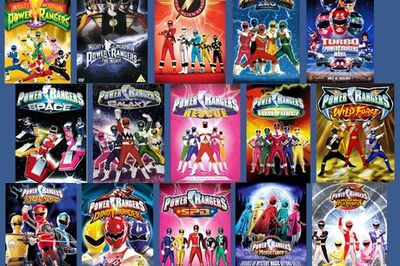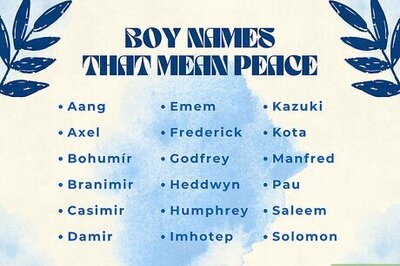
views
Over the years, I have been noticing that the Middle-Eastern cinema has become taut, focussed and shorn of cliches. At the ongoing second edition of the El Gouna Film Festival, I saw two gripping movies that did not stray from their primary plots.
Tunisian writer-director Mohamed Ben Attia examines personal freedom in Dear Son, an extremely moving story of a family whose 19-year-old son turns out to be a black sheep. Through a series of subtle and subdued emotions, Attia tells us how even an impeccable upbringing may not be able to stop a youth from straying into dangerously questionable territory. Here the ramifications can only be tragic.
Riadh (played by an unknown television veteran, Mohamed Dhrif) is a doting father to his teen son, Sami (Zakaria Ben Ayed). His mother, Nazli (Mouna Mejri), is equally caring, and the family has no clue about what could have happened when the boy disappears one fine morning. Admittedly, he has been suffering from severe migraines, and doctors had not been able to put their finger on what was wrong with him. Maybe, he has had a psychological issue. Maybe, the impending academic examinations were stressing Sami. Whatever that be, the family is shattered, especially when friends and neighbours begin to whisper about terrorism and ISIS. The father's search for the son takes the older man to Turkey and Syria, but does he find Sami.
Attia takes us into the frighteningly dark world of terror, and he hints that though the family here in this case was protective and loving, it could not prevent influences outside home to take a vice-like grip on the teenager. A broad indication of what is to come is thrown at us when we are shown a street protest which seemingly disturbs Sami.
However, in the end, Dear Son is essentially a story of a father's search for his child, and it turns out to be a journey of self-discovery as well.
The other film that was also extremely strong was Yomeddine by a first-time Egyptian helmer, A.B. Shawky. He must have been really gutsy to have taken up a subject like leprosy to narrate a road story. The movie's lead actor, Rady Gamal, is an actual leprosy survivor, whom the director met in 2009, when he was making a documentary on the disease.
It is quite shocking to see Gamal as Beshay with his wrinkled hands rummaging through a huge garbage bin. When his mentally ill wife, Ireny, dies, Beshay decides to take to the road in his donkey-cart to try and meet his estranged family in Luxor. It is a long journey from Cairo, but he has his young friend, Obama (Ahmed Abdelhafiz), for company. On the way, the two meet a variety of people, and the road is full of adventures, some happy, some not so happy.
Some of the experiences that Beshay has tell us that leprosy is still dreaded, though quite unnecessary in most cases. When he is kept at arm's length by some people fearful of contracting the disease, it reminded me of the kind of brutality I saw in William Wyler's 1959 Ben-Hur.
(Author, commentator and movie critic Gautaman Bhaskaran is now covering the El Gouna Film Festival )




















Comments
0 comment